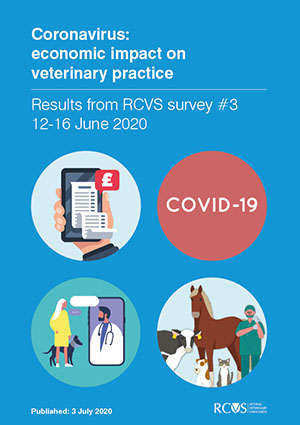-
-
- Council Members
- Role of Council Members
- Council meetings
- Council elections
- Previous election results
- Dr Louise Allum
- Dr Sam Bescoby
- Dr Andrew Clemence
- Dr Tshidi Gardiner
- Dr Reginald Godwin
- Paddy Gordon
- Dr Danielle Greenberg
- Dr Gerard Henry
- Dr Richard Hillman
- Dr Benjamin Kennedy
- Dr Tom Lonsdale
- Dr Darren Partridge
- Martin Peaty
- Alison Price
- Dr Peter Robinson
- Dr Jennifer Simmons
- Dr Sadie Spencer
- Dr Mary Thomas
- William Wilkinson
- Dr Lara Wilson
- Past-Presidents
-
- Advancement of the Professions Committee
- Standards Committee
- Audit and Risk Committee
- Education Committee
- Disciplinary Committee
- Charter Case Committee
- Preliminary Investigation Committee and Disciplinary Committee Liaison Committee
- Registration Committee
- Preliminary Investigation Committee
- Paper classification: some definitions
-
-
-
-
-
- About extra-mural studies (EMS)
- EMS requirements
- Information for vet students
- Information for EMS providers
- Information for vet schools
- Temporary EMS requirements
- Practice by students - regulations
- Health and safety on EMS placements
- EMS contacts and further guidance
- Extra-mural studies fit for the future
-
-
- Code of Professional Conduct for Veterinary Surgeons
- Code of Professional Conduct for Veterinary Nurses
- Contact the Advice Team
- XL Bully dog ban
- 'Under care' - guidance
- Advice on Schedule 3
- Controlled Drugs Guidance – A to Z
- Dealing with Difficult Situations webinar recordings
- FAQs – Common medicines pitfalls
- FAQs – Routine veterinary practice and clinical veterinary research
- FAQs – Advertising of practice names
- GDPR – RCVS information and Q&As
-
- Accrediting veterinary degrees
- Accrediting veterinary nursing qualifications
- Reasonable adjustments for student vets
- Reasonable adjustments for student veterinary nurses
- Health and disability in veterinary nurse education and training
- Reasonable adjustments for students and the UK disability discrimination legislation
- Educational assessment of veterinary nurses
- Roles of key stakeholders in the application of reasonable adjustments
- Examples of reasonable adjustments for vet nurse students
- External review of the RCVS by ENQA
- Requirements for remote and online student assessments
Report on third COVID impact survey published
3 July 2020
We have published the report on our third survey on the impact of the COVID-19 pandemic on veterinary businesses. The survey was held between 12 and 16 June and was sent to the 3,139 UK veterinary practices for which we hold a unique email address.
 In total it gathered 196 responses (a response rate of 6%) compared to the 532 responses to the initial survey conducted between 3 and 7 April (a response rate of 17%) and 251 responses to the second survey conducted between 1-5 May (an 8% response rate).
In total it gathered 196 responses (a response rate of 6%) compared to the 532 responses to the initial survey conducted between 3 and 7 April (a response rate of 17%) and 251 responses to the second survey conducted between 1-5 May (an 8% response rate).
Some of the key changes from the latest survey identified in the report were that:
- Generally, this survey indicates an improving picture with a marked increase in practices running a 'near normal caseload' and practice turnover data reflect a shift back towards normality.
- Fewer staff are self-isolating, with around 15% of practices having veterinary surgeons and veterinary nurses self-isolating/or with Covid-19, compared with 30% in the first survey and 20% in the second survey.
- As expected with the improvement in practice turnover and workload, fewer practices have staff on furlough. The modal (most frequent) response for the percentage of staff furloughed was 11-25% for both veterinary surgeons and veterinary nurses in this survey. This is in contrast to the previous two surveys where the modal response was 26-50% for veterinary surgeons and veterinary nurses.
Lizzie Lockett, RCVS CEO, commented: “This latest survey has demonstrated a continuation of the previous survey’s positive trends including an increase in practice turnover with more practices approaching a 'near normal caseload' and with a reduction in the number of practices impacted by staff self-isolating or with confirmed cases of Covid-19.
“In this survey, we also asked about what difficulties practices may be experiencing with EMS placements for vet students and VN training placements as a result of Covid-19, and this will help us to understand how we can better support students and practices in these areas.
“We will continue to monitor the situation via these regular surveys, with the next one planned for later this summer. I would urge as many practices as possible to continue to complete them, so that we can build up a stronger evidence-base on how veterinary businesses have been affected and how they are recovering.
"This information is not only vital for our own policy decisions but also allows us to present a stronger case to the Government and other public bodies where we wish to influence the decisions they make that will impact the veterinary professions and businesses."
All three survey reports can be read in full at www.rcvs.org.uk/coronavirus-resources.